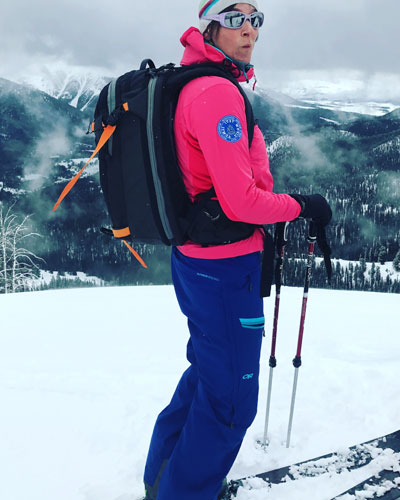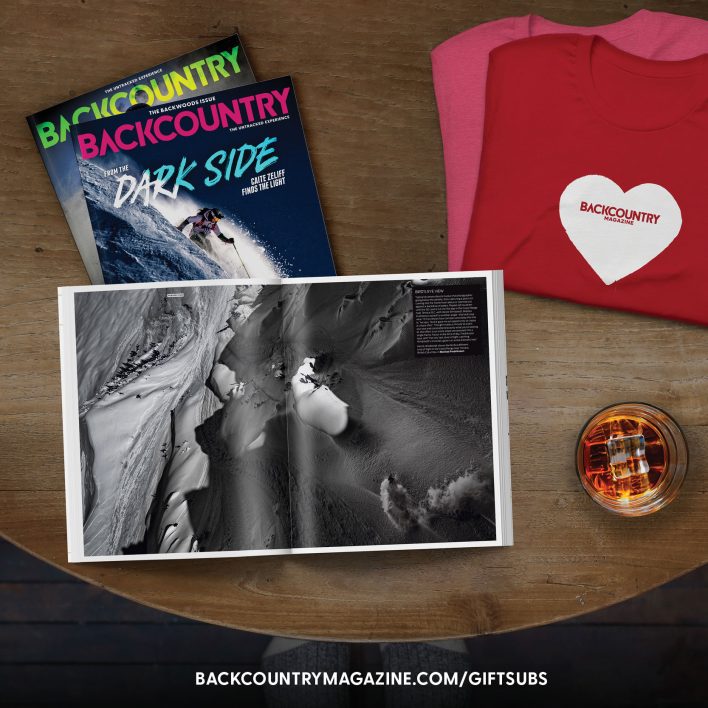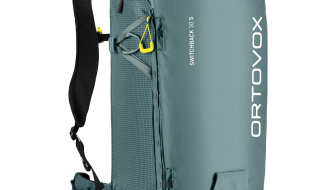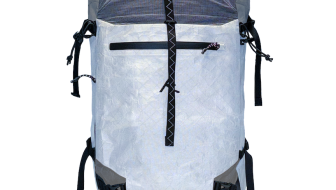
As of 2016, women accounted for roughly 11 percent of those certified through the American Mountain Guides Association (AMGA). It’s a strikingly small percentage, but one that, through the efforts of Margaret Wheeler, is showing promise of an uptick.
In 2006, Wheeler became the second U.S. woman to earn her credentials through the International Federation of Mountain Guides Associations (IFMGA), a move that stemmed from her earlier experiences: Wheeler alpine raced at Mad River Glen, Vt., before attending New Hampshire’s Dartmouth College, where she became immersed in their well-known Outing Club. From there, Wheeler headed to Chamonix, France to ski bum, but in her second winter, a 1999 avalanche wreaked havoc on Mount Blanc, prompting her to return to the states and enroll in engineering school at the University of Washington. Her Chamonix roommate, Hilaree Nelson, suggested she pick up a backcountry setup at a certain gear shop—Pro Guiding Service, owned by IFMGA guide Martin Volken. By 2001, Wheeler was enrolled in her first guide-training course and, by 2002, Volken had hired her to work at Pro Guiding Service.
Now, Wheeler is fully immersed in the guiding world, and she and her husband, Matt Farmer, split their time between Ketchum, Idaho and Chamonix. After a 13-year stint on the AMGA board, Wheeler stepped down this year, but she remains on their technical committee and continues to instruct guide-training courses in addition to serving as the education-committee chair for the American Institute for Avalanche Research and Education (AIARE). She heads AIARE’s professional-track avalanche program, too—“just until we can find a replacement,” she insists.
Even for a self-proclaimed “over-committer,” it’s a lot. But Wheeler says her drive to stay involved in avalanche education, while multifaceted, can be boiled down to a few reasons: As a busy guide herself, Wheeler’s emphasis on education is tied as much to her own survival as it is to her interest in cognitive behavior and the culture surrounding backcountry skiing. “My analytical brain thinks the whole industry—professionals and recreationists—has a low-frequency/high-consequence problem,” she says. “The decisions people make in an AIARE course are not necessarily what they’re making in the backcountry. I’m thinking about how to address that.”
“People are dying on the job,” she says of avalanche professionals and guides, as well as resort-based employees like ski patrollers. “I have friends who say, ‘There will always be deaths from avalanches.’ But I don’t buy it.”










Related posts:
Steep School: learning the tools for ski mountaineering in Montana’s Tobacco Root Mountains
The Skills Guide: Four Steps for Managing Avalanche Hazards
Sheldon Kerr’s Constant Learning
Alpenglow's Golden Hour: A Tahoe-based ski shop's annual mountain festival